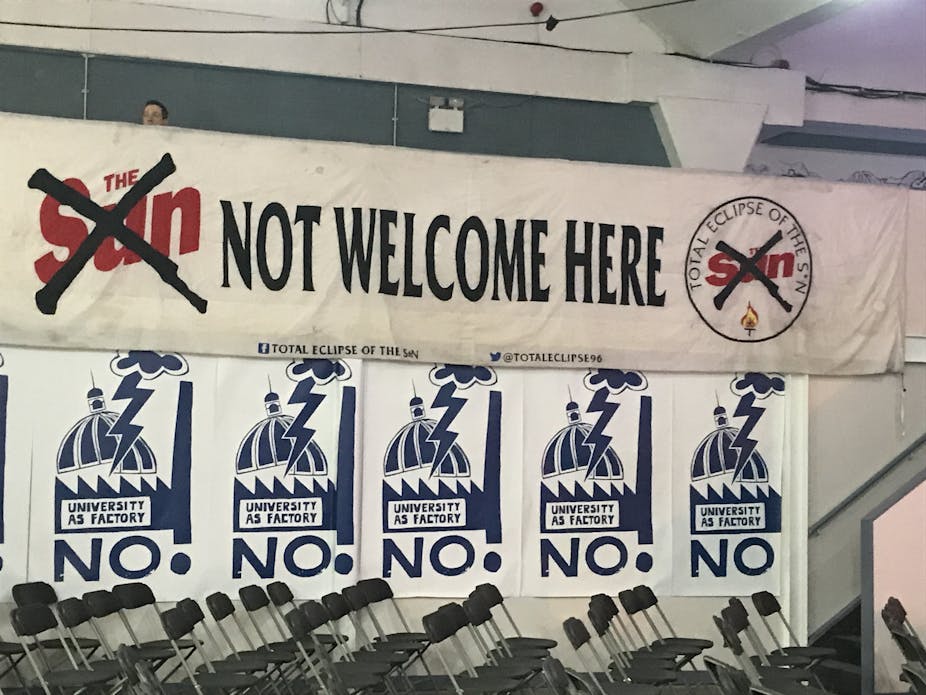“Socialism is the democratisation of every level of society, or it is nothing” declared the arch-Corbyn commentator and activist Owen Jones on the eve of Labour’s 2018 annual conference. “Simply trooping to a polling station every few years”, he continued, “is an insufficient counterweight to the behemoths of global capital”.
The Labour left certainly sees politics in those terms. In the 1970s and 1980s, Tony Benn advocated a massive increase of the role of the state but saw this as necessarily running in parallel with much greater popular engagement in decision-making. Benn believed democratisation would mostly occur through the trade union movement which, in 1979, had 13 million members.
Labour’s current leadership is building on this Bennite tradition but operates in an era when the unions represent just 6 million employees. And most of them are hardly models of mass participation: when Len McCluskey was re-elected general secretary of Unite, Britain’s biggest trade union, only 12% of members bothered to vote. Corbynites therefore look to various social movements to supply this missing counterweight to capital: indeed, Corbyn claims that under his leadership Labour has itself become a social movement. If the evidence for that assertion is patchy, the imperative is nonetheless clear: a Corbyn government that seeks to transform society needs more than a majority in the House of Commons.
The Labour leader’s combative ex-Communist advisor Andrew Murray sees extra-parliamentary support coming from “the mobilisation of the mass of people” on the streets. Others however believe it will develop less dramatically, through changing how millions think about their place in society by imbuing them with a sense of agency – a confidence in their ability to contribute to their own governance. It is arguably a belief that owes more to anarchism than the kind of social democracy with which Labour has been historically associated. It would also require a cultural revolution to match the economic revolution recently outlined by John McDonnell.
Building from the ground up
Few imagine this will be achieved quickly, most that it will require a generation of educative work. But if this process is to begin it has to start somewhere. And many relevant ideas sympathetic to Corbynism were mapped out at The World Transformed, which, since 2016 has existed side-by-side with Labour’s annual conference. According to social movement activist Luke Dukinfield, The World Transformed represents “a profound break with the dispiriting orthodoxies of establishment politics”. This year it took the form of a four-day event that embraced sessions from how to decolonise yoga to destroying the power of the City. It threw together radical policy wonks with young artists and veterans of 1970s workers’ cooperatives.
Different strands attracted different audiences so it cannot be said The World Transformed drew up a coherent agenda but across the four days participants expressed a deep desire for a new way of doing politics, one given hope by Corbyn’s leadership and its promise of a bottom-up radical democracy.
Shadow chancellor John McDonnell addressed a number of sessions at which he enjoyed a hero’s welcome. But it is uncertain how far the ideas expressed at the event will see life in any government of which he is part. Even so, McDonnell appeared genuinely enthused. His ambitious inclusive ownership fund scheme, along with the proposal for employees to comprise one-third of company boards, suggest Labour is taking forward old Bennite ideas and merging them with more contemporary strands of radical thought so as to involve workers in their own management – an idea often reiterated at The World Transformed.
This is an agenda that breaks with all previous Labour governments’ ways of looking at democracy. Most of the party’s post-war parliamentary leaders have been uncomfortable with people doing anything more than voting. If New Labour devolved power to Scotland and Wales it was, in other respects, supremely managerialist. It did things for people rather than with them. Attitudes were however beginning to change under Ed Miliband’s leadership. And indeed, the former leader chaired a session at The World Transformed. One of his panellists, Lisa Nandy – who resigned from Corbyn’s Shadow Cabinet in 2016 having lost confidence in his leadership – described restoring agency to ordinary people as part of the Labour tradition that needed to be revived. You no longer have to be on the left of the party to think democracy should be more than about voting.

The question however remains: is this what most people want? Many ordinary voters seek the renationalisation of a range of industries promised by Labour. But is that because they just want services that are cheap and reliable? Do they also want to help manage them, as workers or consumers, as McDonnell proposes? How many millions of Britons wish to be the kind of active citizens required to sustain a radical Labour government in office beyond simply voting for one?
The answer might seem obvious to those few thousands who attended The World Transformed. But even a few of those sympathetic to the Corbyn project wonder. One of Owen Jones’ Twitter followers recently asked him how a Labour government could “get past apathy”, given that many people “are tired enough after all the elections and referendums”? “I wonder”, continued Jones’ interlocuter, “how they’d react to being expected to go to regular votes and meetings at their workplace and in their local area?” Jones’ response suggests much hard thinking remains to be done on the left. His reply was as brief as it was glib: “phone apps!”

